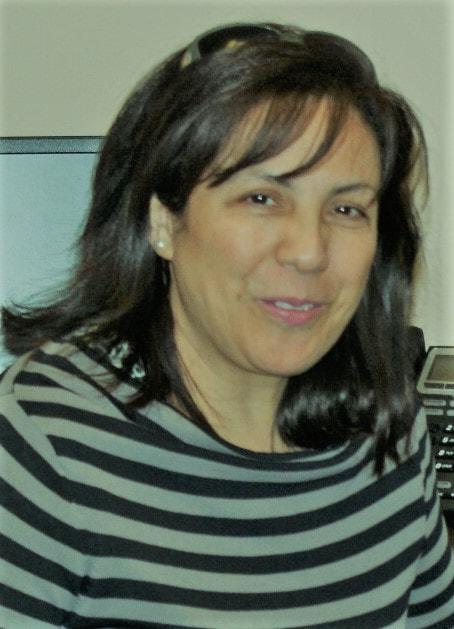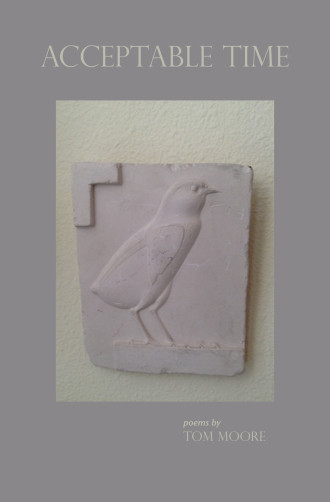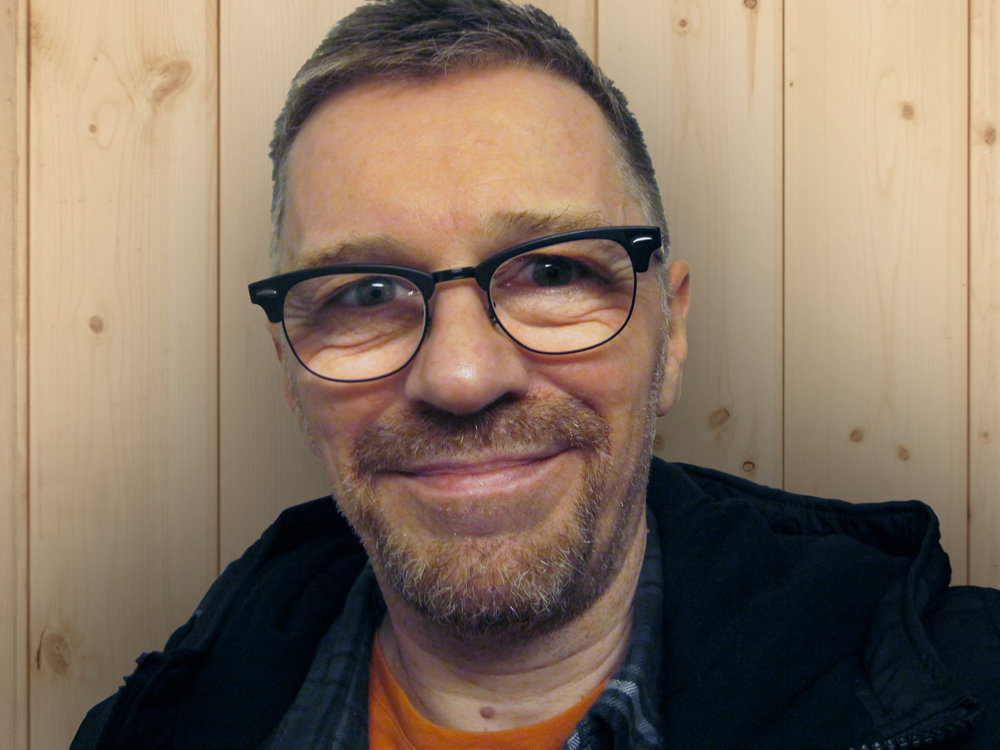Declassified. Mariela Griffor. Eyewear Publishing Ltd. Marylebone, London, U.K.
2017.

Declassified by Mariela Griffor is bursting at the seams with ideas, imagery and outside influences. A short retinue of guest stars has to include: Nelson Mandela, William S. Burroughs, George Orwell, Sappho, Kurt Cobain, David Foster Wallace, Albert Camus, Jean Paul Sartre, Carl Friedrich Gauss, Sofia Kovalevskaya, Sylvia Plath, James Joyce, Henry David Thoreau, Ariel Dorfman and Marcel Proust.
Regardless of the guests, in the end these are poems of love and loss. Every highway we know has ditches littered with the ruined and rusty hulks of what someone once called hope. Or at least the wire-fenced, flower adorned, temporary altar, a reminder of someone's worst moment, another person's worst loss.
Recovery
May 20, 2014
For Regina Derieva
We never met; we never spoke to each other
except through the immigrant song of Jan Johansson,
we knew we were united in
indestructible fibers of life breathing
in and breathing out, marching
to the sound of old days, in countries
that remind us of our own countries,
speaking old languages, that remind us of our own tongues,
we became so suddenly eternal tourists with a right to vote.
It was a time in my life when I stopped laughing
and I knew you did too. I could see it
in the photographs of magazines and
journals where new poems by you were published.
I knew what it was to be without a reason to laugh.
So sorry to have to miss you,
well-planned journeys, well they never happened.
I planned several trips to Rinkeby,
a town that I avoided fiercely when
I was there. It is not easy
to be reminded of cut wings, as you know.
My trips to Stockholm were always
the same, Gamla Stan, centrums, H&M
and the Viking Museum, then back to Uppsala.
Rinkeby was a forbidden point,
the limbo of anybody's trajectory.
But had I known then you were there
I would have faced the fear
and visited you.
and sweet idea the world can be improved, stained
on the pages everywhere.
I love the way you put the
best of you in your poems. The way
you make yourself at home inside a whale,
the way some of your images cannot
leave my head for days, exactly like
a pop song. The way you make me think
with each line and take me to places
I have never been before.
I love the way that insufferable persistence
of something must change in this
endlessness of war times, this time that
consumes each of us and makes us bend
in the direction of the wind a dozen times per day
as in your poem. I pray for that persistence
to infect everyone who reads you.
I'm sorry to have missed you in this life.
I imagine what great times you and I would have had
if we only had the opportunity and time, and money of course,
don't forget that, to meet.
Silly of me to think we would have had
that cup of coffee in Gamla Stan
and talked about pigeons and old catholic schools,
and how the world is not changing but ending.
Nature has its tricks, and even if we make progress,
it will make us part of its garden. Yes, at least.
...
Today's book of poetry has always flattered ourselves that we are "experienced." It is to laugh. Mariela Griffor's Declassified reminds Today's book of poetry just how sheltered our life has been. Up until a post-Katrina visit to New Orleans, I had never heard a gun shot from a weapon fired in anger. I've only heard it once. Admittedly it was several rapid shots from a pistol followed immediately by three or four quick bursts of machine gun fire in return,
The last rebellion of any kind here in Canada was the failed FLQ operation. That was when I was young and both Quebec City and Montreal were as far from Peterborough as Mars. Griffor's Chilean history and her experiences as a political refugee are but one layer of the Griffor onion.
Today's book of poetry was won over quickly, Mariela Griffor has lived through things we cannot begin to imagine and come out the other side clean and hopeful. How astonishing is that? People still have to love and tenderness plays a big role in the Griffor canon.
The Last One
Last night I could not sleep,
the children were not at home. They both had
sleepovers. I was tired, too. Too much time away from
grown ups and I know they will be OK, I will move
back. This time, closer to my father, that at that
time will be old and probably very cranky. But
I will move back to spend with him the
time we never could give to each other before.
I will move back to those mountains in between
Pucon and Talcahuano, I will go to the beaches
around. I also plan to write.
I will take walks in San Pedro to
meet those people I saw the last time
when I was there, and I will run to the
Ocean, to touch the black sand of San Pedro,
I will be closer to God, feeling the thick
air of the early morning. I will let the salt
make my face ruggy and I will think about you and
those days in Chiloe, at the End of the Earth.
I also will go and visit my old relatives, those
that are so old that they don't even remember their
ages. I will put back the pieces of that last poem, and
will promise that you will always have a place in my mind.
It's time for you and me to go different
ways. You find the place your soul was longing.
And I will choose to stay here without you and
with the other I love. Just hang out there,
the day to get together is every day shorter,
but now it is time for me to do so much more.
Last night as I said I could not sleep
I knew this would be my last letter and my
last poem for you.
...
Our morning read was set up by Eric Burden & War belting out the long version of "Spill the Wine."
When Eric quit his temperamental scat, with War throbbing behind him like "hot rings of fire," we got on with our poetry business.
Kathryn, our Jr. Editor, started us off this morning and we were away, Thomas sat in, along with Lucy, our newest intern, and declassified Declassified.
Sometimes the horrors of life confound us innocents, but those rare souls who have had their pearls polished by terrible friction and come out the other side shining write wondrous and brave, Griffor can write deeply caring and sweet poems, or she can knock on the darkness door.
Hardship
Somebody told me this country was hard:
But not this hard.
I didn't believe it because
I came from a hard country myself
and because I lived in other hard
countries so I was not afraid.
I thought we were different yet not
that different. I have nostalgia
for the homeland as I always
did have nostalgia so it was
nothing new. When I started
to see and feel in this new
spooky way and my left eye
started to tremble and I could not
control the movement, like the
most embarrassing tic you can
imagine, I withdrew. The time
began to walk slowly in the
inside and very fast on the outside.
The day after the new election
the bombs and the new troops
didn't stop, we will not talk
about it, because as in my hard
country we don't talk about it.
We can talk only about what
we can talk about and the
rest is just the poor imagination
of dissidents. And how can it be
interesting to talk about what
dissidents talk about if
we already talked about it in the past
elections in the last century. It was
always the same. I do try to see the
good side of living in a hard country
though, so I'm not totally a critic.
I do want to have
my duties, my opinions, and I do
want to see things are changing for
the better, including the economy as
they say on TV. One of the good things
when soldiers come from the front line.
Have you seen the screen of the TV full
of beautiful children running to meet
daddy or mommy coming back? And
the uniform they wear, really beautiful,
no marks of blood or dirt anywhere.
Nobody could guess what
those uniforms can say. Don't take
this the wrong way. I also come
from a family in another hard
country that knows very well
the duty and honour of wearing a uniform
especially this one. What hits me
that hardest is the bouquet
of flowers the soldier brings to his
bride or wife and the running of
this beautiful woman to his side,
the crying every time. Perhaps because
I'm a romantic and I like flowers
or perhaps because I remember his
face destroyed by the hand grenade
he was carrying or the landmine
put in the ground by who knows who.
I guess we will never know. I remember
thinking how much makeup
the mortician had to put
over his face to hide all that
damage. His hair looked good
but those nostril pieces missing
will haunt me forever. See? My
country is also hard. Like
yours. I do think there is
a reason sometimes, yet
most of the time I just think
there is a bigger plot and not
exactly by God or the Devil that things
are this hard. Those who don't
think I'm right, they tell me
to get over it, to adapt, to adjust
and get over it. The ones that think
I'm right, they are mostly silent,
they hide, they don't like my
posts and they avoid
me when I get too difficult.
The problem is that I cannot
adapt and I'm always surprised
seeing more and more people
give in. Yesterday my oldest
child told me in the grocery store
she hated Albanians. Why? I asked
her and she told me, in her building
on the first floor there is a family
of four living in a nine hundred square foot
apartment and all above them can
smell their disgusting food,
bending over to my ear she whispered
and said, I don't like them because they
are all terrorists. And how do you know
that? I asked. Everybody knows that
she responded looking over her
shoulder to show me the Albanian couple
paying at the next cashier. I tell
her that's it. No more. I know I
will adapt. I will write more things
that can be printed and some people
will never read my poems and maybe
I will not think this country is hard
anymore and I will see the positive
side of the whole story and forget.
In the meantime I don't, I'm dangerous
if I remember scars , doorbells,
the sulfur smell of the tear gas
bomb and whistling zig-zag of
bullets coming from an unknown
direction, or if I remember he didn't
have his three left hand fingers.
[But excuse me for a moment,
my friend Cora is at the door,
we need to chat about her French doors
she is getting for her house]
Back to what I was saying:
He used to play the guitar with that hand.
I know they told me this
country was hard but I'm telling
you the truth when I say, nobody
really told me it was this hard.
...
Today's book of poetry has a soft spot for Chilean poets. Nicanor Segundo Parra Sandoval (1914-2018), is an all-time favourite here in our offices. Mariela Griffor will have the recently interred centenarian Parra, smiling, at the very least, a certain sly grin. Griffor is that hard as nails poet with a gentle and loving human heart.
Magic.

Mariela Griffor
ABOUT THE AUTHOR
Mariela Griffor is the author of The Psychiatrist (Eyewear Publishing, 2013) and translator of Canto General by Pablo Neruda (Tupelo Press, 2016). She attended the University of Santiago and the Catholic University of Rio de Janeiro. She left Chile for an involuntary exile in Sweden in 1985. She is publisher of Marick Press. Her work has appeared in periodicals across Latin America and the United States. Griffor holds a B.A in Journalism and a M.F.A. in Creative Writing from New England College.
BLURB
“Mariela Griffor’s brilliant poems navigate the distance between languages, homelands and heartlands. Her poems are the musical and engraved declarations the wounded world requires.”
— Derick Burleson
Ma demeure brûle
5 Poems by Mariela Griffor
Video: LOrigineDuMondeTV
66
DISCLAIMERS
Poems cited here are assumed to be under copyright by the poet and/or publisher. They are shown here for publicity and review purposes. For any other kind of re-use of these poems, please contact the listed publishers for permission.
We here at TBOP are technically deficient and rely on our bashful Milo to fix everything. We received notice from Google that we were using "cookies"
and that for our readers in Europe there had to be notification of the use of those "cookies. Please be aware that TBOP may employ the use of some "cookies" (whatever they are) and you should take that into consideration






